What the media is saying about Tuesday night’s GOP debate
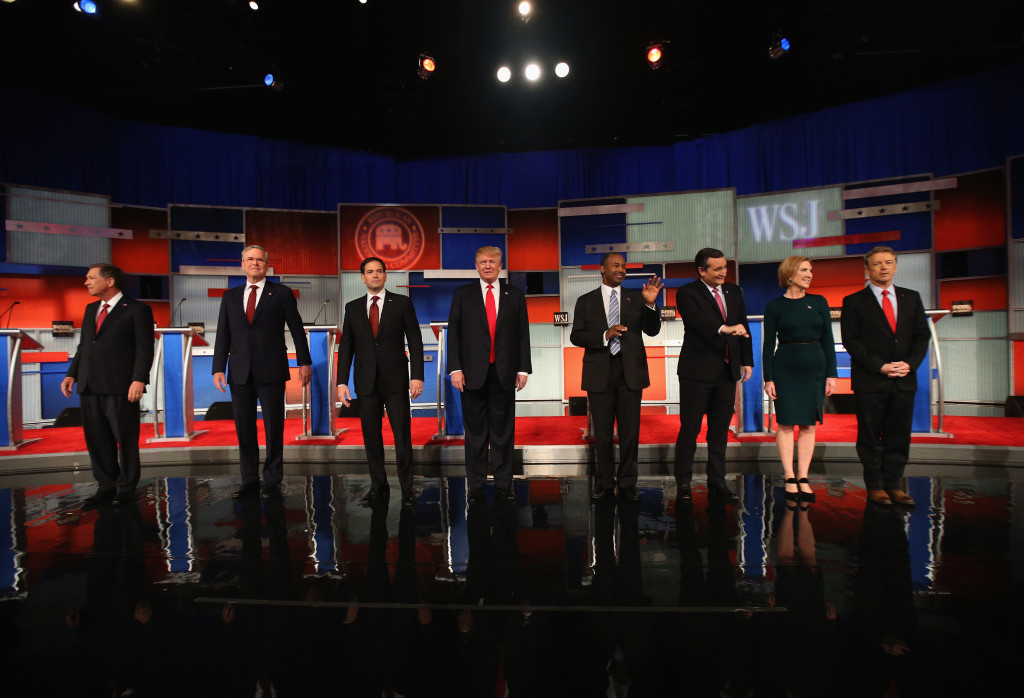
The Republican White House hopefuls took the stage in Milwaukee Tuesday night for their fourth debate face-off. Featuring the top eight candidates, the FOX Business network and Wall Street Journal GOP debate went in-depth on issues impacting the economy, including jobs, taxes, and international and domestic policy. Here’s what the media is saying about the Republican candidates’ Tuesday night performances: Jeb Bush: Frank Luntz, Fox News: Jeb Bush had one of the best responses of the night when he went after President Obama’s record … “We need to repeal every rule Obama has…” Cruz did even better when he went after Hillary Clinton for being “the embodiment of cronyism in Washington.” Chris Cillizza, The Washington Post: Bush’s first answer pledging to repeal all of President Obama’s executive actions was a very good one and tapped into Republican voters’ anger about what they perceive as unlawful overreaches of power coming out of the White House. And throughout the debate, Bush steered questions away from comparisons between himself and other GOP candidates and toward the potential matchup between him and Hillary Rodham Clinton. Bush’s strongest message — and the one he seems genuinely convinced of — is that he is the most electable candidate in the Republican field. For the first time in a debate setting, he was able to punch that message through effectively. Steve Holland and Emily Stephenson, Reuters: A steady performance by Jeb Bush in Tuesday’s Republican debate has halted the sense of desperation around his U.S. presidential campaign and may buy him time to counter the rise of chief rival Marco Rubio. Robert Garret, Dallas Morning News: For once, he stood up to Trump. “Thank you, Donald, for allowing me to speak at the debate,” Bush deadpanned. “What a generous man you are.” Bush was articulate on his tax plan, banking regulation, foreign policy and, especially, a path to citizenship for illegal immigrants. He challenged the Trump-Cruz hard line. Why, though, does one suspect with each passing debate that he’s not a red-meat Republican? Ben Carson: Robert Garret, Dallas Morning News: His canned response to a predictable question about trust fell flat. It came a week after it was disclosed he’d hyped his bio, claiming to have been offerred a West Point “scholarship.” In effect, he said, I’m an honest guy. Carson performed more strongly on his plan for a “tithing” flat tax. It would eliminate deductions for mortgage interest and charitable giving. “The fact is, people had homes before 1914,” he said. Eli Stokolos, Politico: But Ben Carson turned in his shakiest performance yet, struggling with a debate that focused more on substantive policy questions and taking up the least amount of speaking time despite his position in the center of the stage. Maeve Reston, CNN: The calm, cool and collected Ben Carson returned to the Republican presidential race on Tuesday. After a week of lashing out at the press for scrutinizing shifting aspects of his biography, Carson took a lighter touch at the GOP presidential debate sponsored by Fox Business. He brushed off questions about inconsistencies in his personal story with humor and an artful pivot to Hillary Clinton’s role in Benghazi. “Well, first of all, thank you for not asking me what I said in the 10th grade, I appreciate that,” Carson said to laughter. The Economist: Mr Carson seemed out of his depth on foreign policy. But otherwise the paediatric neurosurgeon had a relatively good debate, in spite of his soporific style. Ted Cruz: Jonathan Martin and Patrick Healy, New York Times: Mr. Cruz also argued repeatedly for big government changes, but stumbled notably when he pledged to eliminate five major federal agencies and then struggled to name them — a moment that recalled another Texan, then-Gov. Rick Perry, in a debate during the 2012 presidential race. “Five major agencies that I would eliminate: the I.R.S., the Department of Commerce, the Department of Energy, uh, the Department of Commerce and HUD, and then 25 specific programs,” Mr. Cruz said. Robert Garret, Dallas Morning News: Did we hear a Texan running for president stumble about which federal agencies he’d shutter? We did. It was no Perryesque “oops” moment, though. Cruz simply mentioned the Department of Commerce twice. Cruz went back to media-bashing. If illegal immigrants were taking journalists’ jobs, he sniped, there’d be more coverage of the economic consequences of a porous border. He was effective in warning that the GOP will lose if it’s a “party of amnesty.” Jeremy Diamond, CNN: The firebrand conservative slammed critics who dub his hardline position on illegal immigration as “anti-immigrant,” calling that “offensive”; he staked out the middle ground as Rubio and Paul argued for opposing degrees of American intervention in Middle East conflicts; and he played to his base by slamming moderate, establishment Republicans. Carly Fiorina: Robert Garret, Dallas Morning News: Fiorina’s repeated assault on “crony capitalism” burnishes the image — preposterous though it might seem for a former Hewlett Packard CEO — that she’s a populist outsider. “It’s about actually challenging the status quo called government,” she said, speaking of jobs. Her delivery is so crisp, few listeners notice when she ignores a question. Also, she got an assist when Trump whined, “Why does she keep interrupting everybody?” Jeremy Diamond, CNN: She’s back. The former Fortune 500 CEO reclaimed her spot as one of the field’s most effective and hard-hitting debaters — a quality that first hoisted her onto the main debate stage after a stand-out performance in the cycle’s first primary debate. Fiorina played to her strengths as a business executive, status as an outsider and displayed her command of the biggest foreign policy issues confronting the U.S. John Kasich: Erick Erickson, Fox News: Lastly, John Kasich is just an insufferable, angry man. Kasich tried to stand out by yelling and interrupting, but it did not work for him. He came across as a temper tantrum prone child while claiming to be the adult in the room by dismissing any new ideas. John Zogby, Forbes: John Kasich – was able to explain his experience, his success in DC and Ohio, and for being a compassionate conservative. He also carved
Jim Zeigler to host weekly radio segment on AL politics
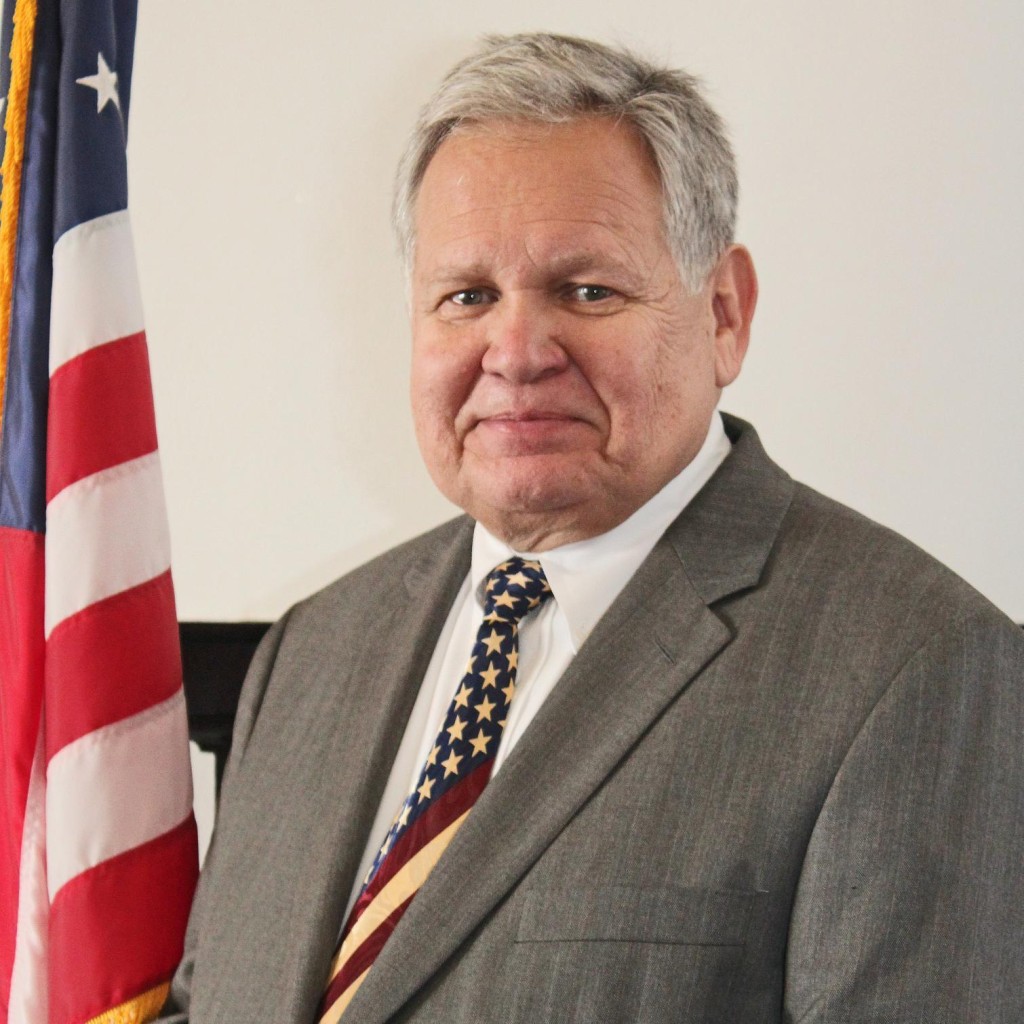
State Auditor Jim Zeigler isn’t known to be shy about voicing his opinions on the state of government in Montgomery or the politics surrounding it. But the second-term auditor will soon take his views to a broader stage, hosting a weekly talk show segment called “Weekly Waste Cutter Update,” to air in Huntsville, Decatur and on the Internet. “Of all the politicians in Montgomery,” Zeigler posted on his Facebook page Wednesday, “which one do you think has been asked to do a weekly radio program telling the public (you) what is really going? “I am blessed to ‘star’ in a statewide radio show,” Zeigler said. It will air on Monday late afternoons at 5:39 p.m. Central Time “so you can listen on your way home,” Zeigler said. The show is available on the Internet at WTKI Radio’s website, as well as in Huntsville on WTKI-FM 92.9 or WTKI-AM 1450 and in the Decatur area on WEKI-FM 94.7 and WEKI-AM 1490 every Monday.
Terri Sewell to visit Cuba to discuss expanding agricultural trade

Rep. Terri Sewell (AL-07) is headed to Cuba. Sewell announced Tuesday evening she will be traveling to Cuba this week with U.S. Department of Agriculture Secretary Tom Vilsack on a congressional delegation to discuss opportunities to expand agricultural trade. “I am excited to join Secretary Vilsack for this historic visit to Cuba,” Sewell said in a news release. “This visit builds on the trade summit I hosted in Montgomery earlier this year with U.S. Trade Representative Michael Froman. Given Alabama’s growing trade interests, I look forward to meeting with members of Cuba’s Ministry of Agriculture and discussing ways to further expand trade with Cuba.” The schedule includes meetings with Cuban government officials in agriculture, foreign affairs, and food purchasing and visits to port facilities, markets and cooperatives. “This trip will be an opportunity to support the administration’s commitment to normalizing relations and empowering the Cuban people through bilateral agricultural engagement,” Vilsack said. “Food and agricultural goods are the dominant U.S. exports to Cuba and agriculture can serve as a bridge to foster cooperation, understanding and the exchange of ideas. According to the Foreign Trade Division of the U.S. Census Bureau, Alabama exported about $32.8 million in food products to Cuba in 2014. “With renewed U.S. diplomatic relations in Havana, my hope is that Alabama will derive huge economic benefits that have been fostered by existing trade relationships with Cuba,” Sewell said. “Access to foreign markets and fair trade policies that benefit American workers are necessary components that will help Alabama exporters to continue to thrive and spur new job creation. President Obama took historic steps to chart a new course for U.S.-Cuba relations when he restored diplomatic relations between our two countries. This will undoubtedly serve as a catalyst for increased trade and investment opportunities in Cuba for Alabama businesses, especially those in our agriculture sector.” Under the Obama Administration, the United States has sought to improve relations with the Caribbean nation. The trade embargo was softened, Cuba was taken off the “terrorist sponsor” list and earlier this year embassies were established in each nation for the first time since 1961. Rep. Sewell will be joined by Sen.Jeff Merkley of Oregon, Rep. Suzan DelBene of Washington, and Rep. Kurt Schrader of Oregon. The delegation left Washington, D.C., Wednesday and will return Saturday.
Donald Trump: It’s “beautiful” to watch GOP rivals drop out
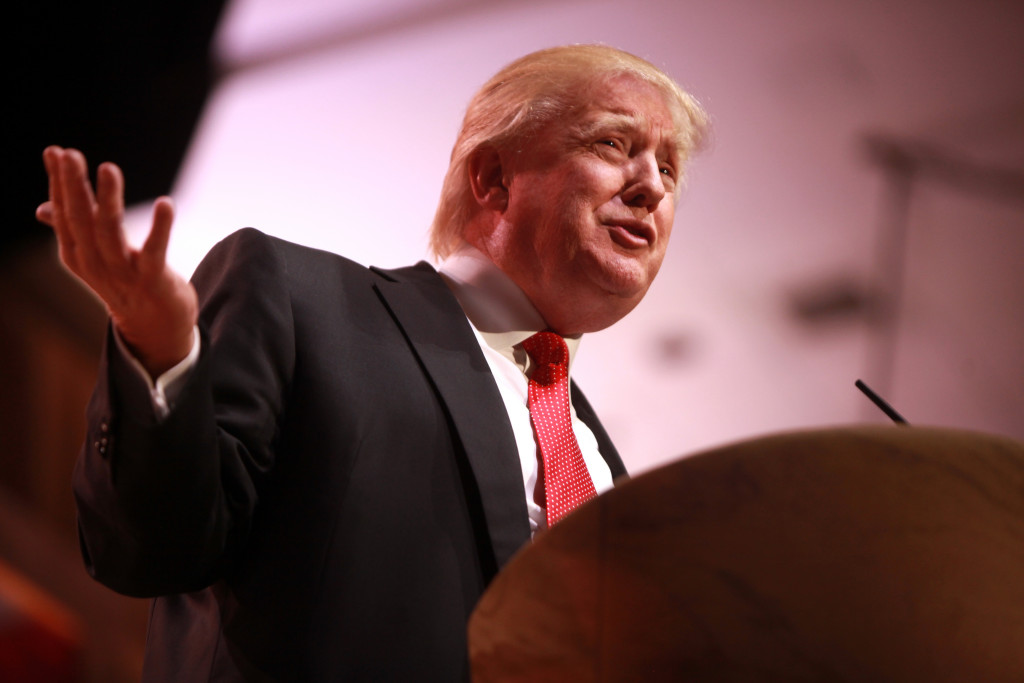
Donald Trump is just fine with eight candidates on the debate stage, and he wouldn’t mind if a few more disappear before the next one. “We started off with 17, and one by one by one they’re disappearing,” Trump told a New Hampshire crowd Wednesday morning. “It’s a beautiful thing to watch as they go out: I love it.” Trump’s appearance in New Hampshire came less than 12 hours after he debated his Republican rivals on stage in Milwaukee. He made sure voters knew it was a quick turnaround, telling the crowd he slept for just an hour and a half and called two of his sons on stage to say a few words. Trump wasn’t the center of attention at the debate on Fox Business Network, but he did engage in a back-and-forth with Ohio Gov. John Kasich and called out Carly Fiorina for interrupting others. He said his rivals will keep leaving the race as they fail to generate high polling numbers. The other candidates have got “lots of problems, right? The biggest problem is they don’t get the votes, they don’t get the polling numbers,” Trump said. Trump attracted a different crowd, to Wednesday morning’s Politics & Eggs event, a staple for presidential candidates in New Hampshire that typically draws only business professionals. But Trump’s speech also drew many of his supporters, creating the largest crowd in the program’s history and requiring organizers to move the event to a hotel in Manchester for more space. He wasn’t modest about the size of the crowd. “Anywhere I go in New Hampshire we have thousands and thousands of people, and I say it’s like a movement,” Trump said. Rather than starting with a long speech, he spent most of his time answering questions from the crowd, promising to stop illegal immigration, bring back jobs from other countries and invest in the country’s infrastructure. Most, but not all, of the questions were friendly. Asked about police militarization and violence against blacks by a black man, Trump deflected on the issue of race. To some applause, he said, “I happen to think the police are not being treated properly in this country.” Republished with permission of The Associated Press.
Local “Fight for 15” campaign draws moderate turnout in Birmingham

Across the nation, some 270 Occupy Wall Street-flavored campaigns urging statehouses, local governments and even Congress to increase the minimum wage to $15 an hour took place Tuesday. Democratic presidential candidate and Vermont Sen. Bernie Sanders even told protesters assembled outside the U.S. Capitol, “You’re having a profound impact.” But in downtown Birmingham? Not as much. According to reports, a crowd of around 30 gathered to stand in solidarity with labor and social justice activists around the nation calling for a higher minimum wage, including Pastor Gwendolyn Webb, a longtime leader of left-leaning movements dating back to the Civil Rights era. One protester called a $15 hourly wage “number where people can see a future,” where a normal worker can save and plan beyond the paycheck-to-paycheck grind. Protests also took place Tuesday night in Tuscaloosa, where they were joined by workers from the Hyundai plant in Selma. Don’t expect them to have the same kind of influence they had in New York for instance, where Gov. Mario Cuomo announced Tuesday he will pay all state workers in New York City $15 per hour, and all state workers that amount by 2021, however. Though Sanders joined in the call for “15 bucks and a union” Tuesday, Alabama is a famously supply-side state, and many blue-collar voters here seem to like that just fine. GOP leaders who routinely dominate the more labor-friendly Democrats at the ballot box say low taxes, low wages, and less regulation is what makes Alabama – which has had something of a manufacturing renaissance in recent years – competitive against its neighbors for jobs and development.
Ronda Walker: Fiscal conservatism, the true American dream

Do you realize that home ownership is an American dream not an American right? The same is true with vacations, cars, and designer clothing. Not everyone gets to enjoy all of the amenities America has to offer and the sooner we accept that the better off we will be. Moreover, the sooner we end our bondage to the debt-driven life the more prosperous we will become as individuals and as a society. We rail about wasteful government spending and unsustainable budget deficits but the truth is most of our personal financial practices are as bad as the financial practices of most governments. Thanks to financial institutions with overzealous lending practices, coupled with individuals with little to no fiscal responsibility, people buy homes they cannot afford. Add to that buying pattern a recession, and now we have foreclosed homes sitting in neighborhoods all across America. Shame on us. What does it mean to live within your means? Unfortunately it is a concept that most Americans care nothing about. Consider this: if you don’t have the money, don’t spend the money. If you have ever paid for a Disney vacation on a credit card then you are not living within your means. If you find yourself swimming in holiday debt come January, you are not living within your means. If you have a nice house and two cars, yet you cannot ever seem to make ends meet you are not living within your means. For some, being fiscally responsible is not a priority and I guess those individuals are clicking off of this article about now. But for those that care about being responsible with their money, for those that believe it is important to spend wisely, build savings, and give generously then please read on. There was a time when it was shameful to be indebted to another person and individuals would work tirelessly until they could pay their debt in full. But by the 1980s the American work ethic had been replaced by a new debt driven consumerism. We devolved from a personal savings oriented society to a debt accruing oriented society. Where families once endeavored to build their savings, they now had a credit card burning a hole in their wallet. There was no more reason to skimp and save, just put it on the plastic! Just as your family income is limited, government funds are also limited. As an elected official with responsibility over a one hundred million-dollar budget, I have to constantly make difficult spending decisions. Setting budgets for various departments that serve the residents of Montgomery County is a challenge. Deciding which extra-governmental organizations receive assistance and which do not is difficult. I take my fiscal role seriously. I am the overseer of tax dollars that were hard earned by the residents of my county and I will manage those dollars to the best of my ability. Each month the County Commission has a long line of departments, groups and individuals seeking government dollars to aid their project or service and sometimes we have to tell them no. It is imperative that I balance the basic infrastructure needs of the county with the need to ensure the health and general welfare of the citizenry. The budget must be balanced, spending decisions must be wise, and debt must be minimal. My approach to governing as a fiscal conservative did not begin when I was sworn into office. It began many years before when my husband and I first got married and we committed to live within our means. The same standards I apply to my family budget I apply to the Montgomery County Commission budget. I will admit, in my personal life I am sometimes swayed by my children to splurge on an unnecessary item. I occasionally give in and buy them some candy from the check out aisle. The same is true with work, but I assure you that is the exception and not the rule. When my husband and I married neither of us was in a great place financially. He was divorced, paying steep child support payments, and living in his aunt’s basement in Lowndes County. I had just finished graduate school, had a few thousand dollars in student loan debt, and had cashed in my small 401k a few years earlier to buy a nice red Mustang. Although in our early 30s we were starting from financial scratch. As our wedding date approached our friends and family wanted to know where we were going to buy our new home. They were surprised and confused when we told them of our decision to rent a two-bedroom house not far from downtown Montgomery. It was a small house in what was quickly becoming a sketchy neighborhood, but the rent was low so we made it work. My husband and I both worked hard and made modest salaries so it confused everyone further when we told them of our decision to live on my husband’s income and put my entire paycheck directly into a savings account. We lived simply, but we did not go without basic necessities or even an occasional splurge. We had one emergency credit card with a five hundred dollar limit, which went unused, we had a small amount of student loan debt we chipped away at each month, but most importantly we had a growing savings account. At the end of that first year we had enough money to put a nice down payment on a home of our own. Again, friends and family chimed in assuming we would buy a newer home in a newer area of town. We didn’t. We bought a nice older home in a central Montgomery neighborhood. We got twice the square footage for half of the price of a newer home. Sure we qualified for a much nicer home, but we were not lured into that debt trap. After some paint and new light fixtures our new house was perfect for us. After the home purchase
Will Lochamy: We need Uber

We need Uber. We need it now. And here’s why. We have a drinking and driving problem. The problem is that drunk driving is simply accepted here as part of the routine. When people go out downtown, they drive. Public transportation and rides for hire are rarely reliable and, therefore, an afterthought. We tend to forget that it’s an issue until visitors come to town and point it out, usually in shock. Cities that welcome ride-sharing see significant drops in DUI deaths even though most already have ample available taxis. This is due to the fact that Uber is generally 20-30% cheaper than traditional taxis and most find it to be much more efficient. It’s the new ride of choice across the country and world. Can you imagine the change it will bring to the citizens of our community, who don’t exactly have a happy marriage with the cab industry? Let’s not stunt our growth. Birmingham is seeing a revolution and rise in popularity like never before. This ride-share issue is one of our few, but big, black eyes. People are eager to move here for jobs and school, but the lack of simple accommodations that they can find in competing cities (Nashville, Atlanta, etc.) will keep many out. Investors are watching this, I assure you. Let’s not be the antiquated Birmingham many expect us to still be. SEC Media Days, Sloss Fest, the SEC Baseball Tournament, the Birmingham Bowl… the list goes on. Our area hosts legitimate events that bring large crowds to town. Let’s keep it that way and look good while we do it. Thanks to social media, the lack of transportation is no longer just our frustration. Visitors are taking to the airwaves and Twitter to express their frustration with not being able to get around Birmingham. Beyond having to deal with embarrassment, we might have to deal with these events losing support and even moving to other, twenty-first-century-compatible cities. It’s time. I laugh (only because it beats crying) every time I hear city officials say how much they want Uber, then watch them turn around and speak against it at the state house and write codes that they know good and well will keep Uber from operating here. The time is now, November 2015, for Birmingham to stop this silliness and give the citizens what they want. Because apparently it’s too hard for our officials to look at any of the specific TNC (ride-sharing) laws passed by over 60 major U.S. cities, Uber has laid out the simple answers for Birmingham’s recently written Transportation Code. I read them. They make perfect sense and are easy to understand, even for a dummy like me. It’s time. Speak up and let your voice be heard. The people in power are happy to leave us Uberless unless we do something about it. Will Lochamy is co-host of the radio show, “Oh Brother Radio” on Birmingham Mountain Radio (107.3FM).
Alabama delegation honors America’s veterans this Veterans Day

There are 19.3 million veterans living in the United States and 409,997 of them call Alabama home. Today, in honor of Veterans Day, members of the Alabama congressional delegation are paying tribute to their selfless service and sacrifices. Here’s what the Alabama delegation is saying in honor of Veterans Day: U.S. Sen. Richard Shelby: Today I proudly join my colleagues and Americans across the country in paying tribute to our nation’s veterans and their families. Without the selfless sacrifices of the courageous men and women in uniform, the freedoms we enjoy as Americans would not be possible. On Veterans Day and every day, we must remember that freedom comes at a great price, and that we owe our active duty and retired servicemen and women a debt of gratitude. Our veterans’ unwavering commitment to defending security and prosperity should never be forgotten. U.S. Rep. Bradley Byrne (AL-01): …So on this Veterans Day, and every day, may we never forget the courage, sacrifice, dedication, and unselfish nature of all those who have served our country. And to all our veterans and their families: on behalf of a grateful nation, thank you for your service and God bless the United States of America. Watch Rep. Byrne’s full statement below: U.S. Rep. Martha Roby (AL-02) via Facebook: Veterans Day is a time to pause and honor those who have served in uniform to protect this nation and the freedoms we enjoy. It is a special day when we make sure to say “thank you” to our friends, neighbors, family members – and those we’ve never even met – for their service to our country. …God bless you and thank you for your service. U.S. Rep. Robert Aderholt (AL-04) via Facebook: Thank you veterans for your service to our nation. U.S. Rep. Gary Palmer (AL-06): I want to wholeheartedly express my appreciation to each and every one of our veterans, both in Alabama and throughout America. Our national anthem calls the America the ‘land of the free and the home of the brave.’ A popular rephrasing of that is that America is ‘Land of the free because of the brave.’ It remains free because brave citizens choose to join our armed forced and serve their country sacrificially. U.S. Rep. Terri Sewell (AL-07): Today we salute the selfless sacrifices of our nation’s 21 million veterans. These patriots have kept our nation safe while defending our nation at home and abroad. They have served our country with distinction, and we should honor them for their bravery and courage with actions — not simply words. Congress must continue to support and provide critical resources to the Veterans Administration (VA) to ensure that our veterans have access to quality health care, good-paying jobs, affordable housing, and opportunities to continue their education. We should not deny the very liberties they fought to protect, nor deny them any benefits they so fittingly deserve. I am committed to ensuring that we honor the promises that were made to these American heroes. Today, we reaffirm our commitment to them and their families by vowing to make sure they succeed. They deserve nothing less.
Marco Rubio: Relationship with former mentor Jeb Bush is ‘fine’
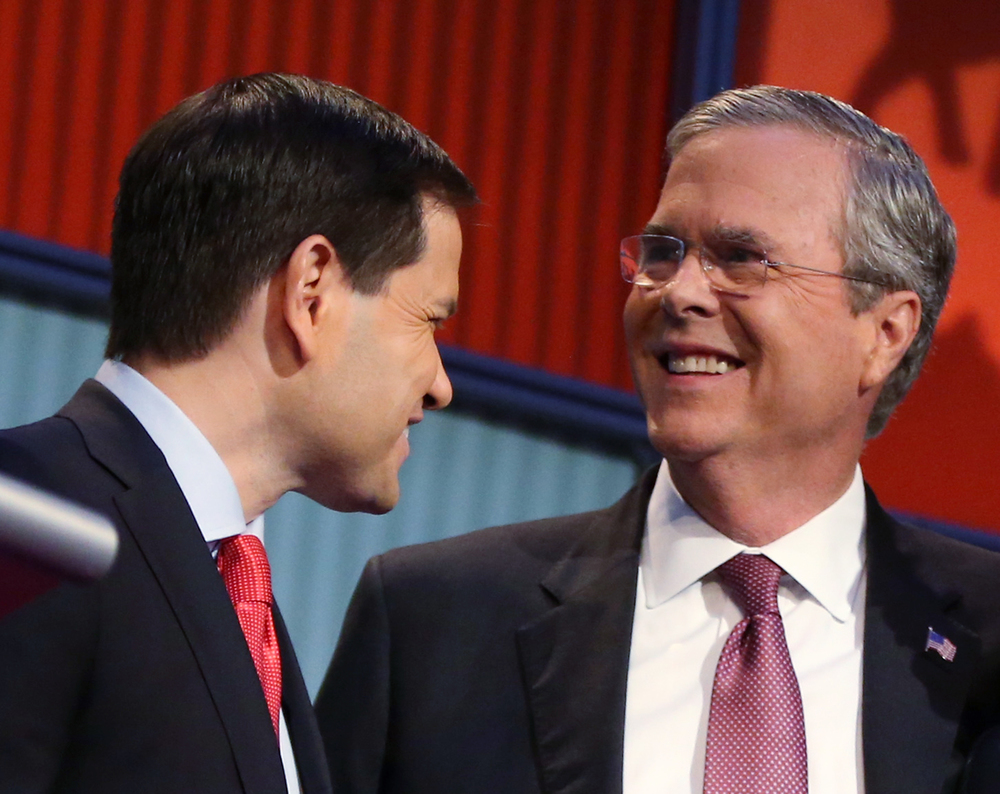
Republican presidential candidate Marco Rubio insisted Wednesday his relationship with onetime mentor Jeb Bush is “fine,” even as tensions between the two campaigns ratcheted up. Donald Trump defended his plan to deport millions of people living here illegally, saying it could be done “humanely.” Making the rounds on morning television talk shows a day after the GOP presidential debate, the candidates pressed their main talking points before heading out to campaign in early voting states – but they also faced questions in the aftermath of their debate performances. Rubio was asked about a moment during a commercial break that viewers could not see. A video of the moment left unclear whether Bush actually turned away from a Rubio overture, but some commentators cast it as an apparent snub. “It may have looked that way, but that’s not what happened,” Rubio said on ABC’s “Good Morning America. “We’re fine.” Bush’s campaign has been more aggressive in attacking Rubio, his one-time protégé, while Rubio’s campaign has been working to counter that, in part by citing Bush’s praise of him over the years. Trump appeared in a lengthy interview on MSNBC and repeated his call for mass deportations of people here illegally. He said he would deport the estimated 11 million people living here illegally, touting President Dwight D. Eisenhower‘s efforts in the 1950s as proof such a mass deportation can be done. When pressed on how he could carry out the deportation of millions of people, Trump said “you’re going to have a deportation force, and you’re going to do it humanely.” Rubio said the government must deal with those here illegally “responsibly but realistically.” He said the government must first prove to the American people that “illegal immigration numbers are down significantly” and then “modernize our legal immigration system so that it’s merit-based.” He said those applying to remain in the country legally would have to pass a criminal background check, pay a fine and learn English, among other requirements. He said they would then get a “work permit” valid for at least 10 years. In a statement, Democratic National Committee spokesperson Christina Freundlich said Rubio “is offering no solutions to provide relief for our country’s immigrants.” “Instead, he is trying to win over Trump supporters while turning his back on families that have a similar story to his own,” she said. Trump, Rubio and most of the other GOP presidential candidates are campaigning Wednesday in Iowa, New Hampshire and South Carolina, all states with early contests. Tuesday’s debate, the last for the GOP until mid-December, left the crowded GOP field jumbled with less than three months until primary voting gets underway. Republished with permission of The Associated Press.
GOP debate takeaways: Candidates dive into immigration, spending
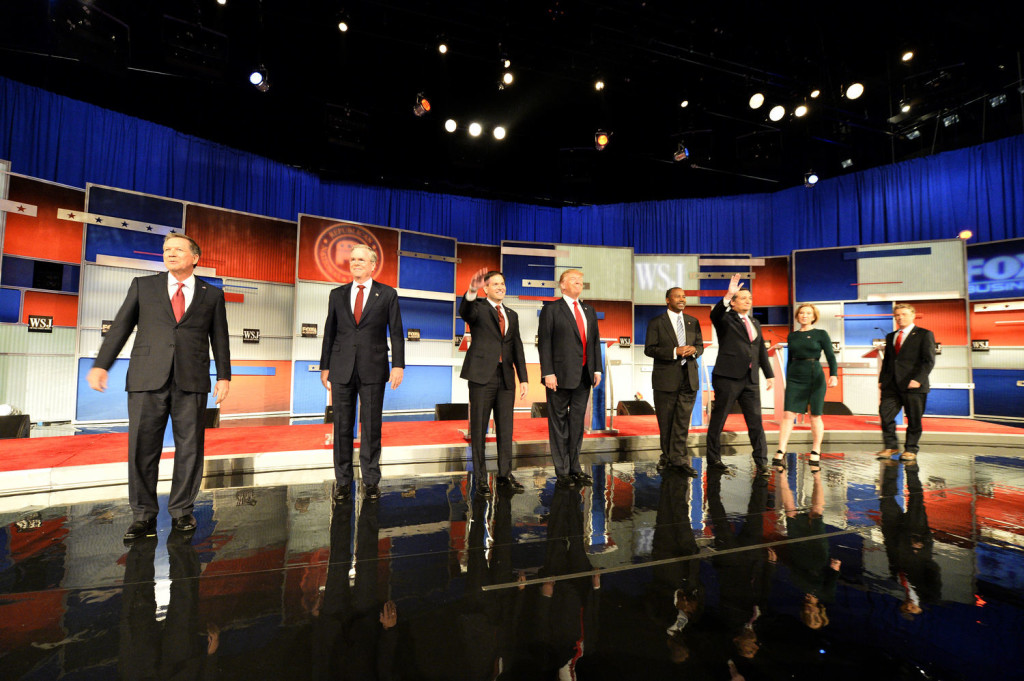
The fourth Republican debate of the 2016 presidential election had the distinct feel of, well, a real debate. After Republicans widely panned the moderators at the previous debate for creating a circus-like atmosphere, the candidates – eight, the smallest group yet – had far deeper discussions about their policy plans, particularly on taxes, military spending and immigration. Taking the stage in Milwaukee were celebrity businessman Donald Trump and retired neurosurgeon Ben Carson, the leaders of most recent polls, and Florida Gov. Jeb Bush, Sen. Marco Rubio of Florida, Sen. Rand Paul of Kentucky, former Hewlett-Packard CEO Carly Fiorina, Sen. Ted Cruz of Texas and Ohio Gov. John Kasich. As he has in other recent debates, Trump seemed to fade from the spotlight at times. He also seemed to embrace a role as a referee of sorts, complaining that Kasich was taking too much time from Bush and exclaiming about Fiorina, “Why does she keep interrupting?” Here are some other takeaways from the Milwaukee matchup. — A SPLIT ON WHAT TO DO ABOUT IMMIGRATION This debate showcased a significant policy debate within the Republican Party when it comes to immigration. Trump and Cruz advocated vociferously for deporting an estimated 11 million immigrants who are in the country illegally, while Kasich and Bush called that impractical. Cruz said Republicans will lose the presidential race if they offer “amnesty” to illegal immigrants. “We can embrace legal immigration while believing in the rule of law,” he said. Earlier, Trump had reiterated his promise to build a secure wall along the U.S. border with Mexico. “We are a country of laws,” he said. “We need borders. We will build a wall.” While a popular position with some of the most conservative Republican primary voters, Kasich and Bush argued that’s not a practical position for the GOP nominee to take into the general election next November. “For the 11 million people, c’mon folks. We all know you can’t pick them up and ship them across the border,” Kasich said – a line that drew enthusiastic applause from the audience. Bush put it in starker terms: “They’re doing high-fives in the Clinton campaign when they’re hearing this.” Indeed, Democratic front-runner Hillary Rodham Clinton‘s spokesman Brian Fallon wrote on Twitter about the exchange, “We actually are doing high-fives right now.” One person who wasn’t asked to weigh in – and didn’t insert himself into the discussion – was Rubio, who has had to walk back his involvement in a failed Senate plan to dramatically overhaul the country’s immigration policies with a plan that included a pathway to citizenship for undocumented immigrants, which some Republicans decried as unfair amnesty. — SPENDING DIFFERENCES Rubio has been attacked by Bush and Trump in the past as an absentee lawmaker, yet it was Paul who hit the Florida senator the hardest during the debate. Paul slammed Rubio’s plan to expand tax credits for families with children, which Paul said amounts to a new expensive welfare program. “We have to decide what is conservative and what isn’t,” Paul said. And a Paul-Rubio exchange about military spending highlighted another policy divide within the party. “Can you be a conservative and be liberal in military spending?” Paul asked, pointing to Rubio’s plans to expand the military. Rubio fired back: “I know that Rand is a committed isolationist. I’m not.” Cruz interjected that there’s a way to “split the difference.” He said, to audience applause: “You think defending this nation is expensive? Try not defending it.” But Cruz said he would offset any increase in military spending by cutting in other areas, offering up the federal subsidy for the sugar industry as a specific example. Cruz didn’t say it on the debate stage, but Rubio has defended that subsidy – which greatly benefits the Florida-based industry. — KASICH AND BUSH TAKE ADVANTAGE OF LONGER FORMAT Kasich elbowed his way into the debate again and again, saying at one point, “Look, I hate to crash the party.” Kasich and Cruz had a testy exchange late in the debate on whether big banks should be propped up with federal help as they fail. Cruz said flatly that he would not, for example, give the Bank of America bailout money even if it were teetering on the brink. Kasich took another approach, saying he wouldn’t ignore people who have their life savings in these banks. He said executive experience matters, arguing that “on-the-job training for president of the United States doesn’t work.” Bush noted early on that he only had four minutes of speaking time in the last debate. Although he still wasn’t the chattiest candidate on stage, he did make use of the longer response times moderators allowed this time and called out Clinton as out of touch on the economy. “Hillary Clinton has said that Barack Obama’s policies get an ‘A.’ Really?” Bush asked. “One in 10 people aren’t working or have given up looking for work, one in seven people live in poverty, and one in five are on food stamps. That is not an ‘A.’ It may be the best that Hillary Clinton can do, but it’s not the best America can do.” — CARSON BIO LARGELY UNQUESTIONED Coming into the debate, Carson was expected to face tough questions about certain discrepancies in his life story, which has served as a point of inspiration long before he became a presidential candidate. Yet moderators touched only lightly on that topic. “I have no problem with being vetted,” Carson said. “What I do have a problem with is being lied about and putting it out there as truth.” He argued he’d been scrutinized more than Clinton, successfully pivoting the discussion from himself to the Democratic front-runner. “People who know me,” he said, “know that I’m an honest person.” Republished with permission of The Associated Press.


